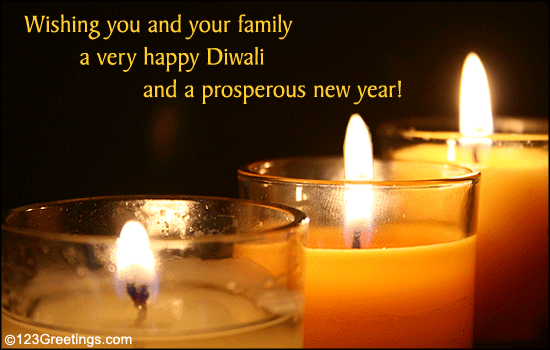Saal Mubarak, is a traditional Hindu Gujarati greeting reserved for use on Diwali and Gujarati New Year, which is a day after Diwali, the Hindu festival of lights and the triumph of good over evil, as well as light over darkness. Saal means year, and mubarak is an originally Arabic term meaning blessing or good wishes. The phrase 'Saal Mubarak' is Gujarati equivalent of Happy New Year.
In Hindi speaking regions Naya Saal Mubarak Ho is also used, meaning Happy New Year. Sikhs and Hindu's in the Punjab use the term "Diwali Mubarak" more commonly.
Gujarati new year is celebrated the day after the Diwali and is the 4th day of the five day Diwali festival. The Gujarati New Year is synonymous with Sud Ekam (The first month and first day of the Gujarati Lunar Calendar, Kartak is the first month in this new year while Ekam refers to the first day). The Gujarati community all over the world celebrates the New Year to mark the beginning of a new fiscal year and people put their worries behind, forget about their past rivalries and misunderstanding and prepare to welcome a new beginning.
Saal Mubarak can be translated to mean 'Happy New Year' which usually takes place the day after Diwali. During Diwali many Hindus visit family and exchange greetings such as "Saal Mubarak". This exchange of greetings is a cultural tradition and not part of any religious obligation.
Saal Mubarak is also a term used in the state of Gujarat also by the Gujarati diaspora to celebrate the Gujarati New Year, Bestu Varas (also see Diwali in Gujarat). Gujarat has many cultural similarities with neighbouring Pakistan as well as the middle east, and the term Saal Mubarak often gets mistaken for an Islamic term, not to be confused with Eid Mubarak.





